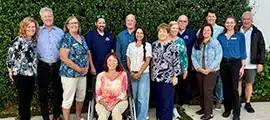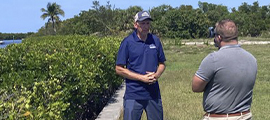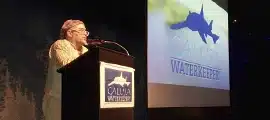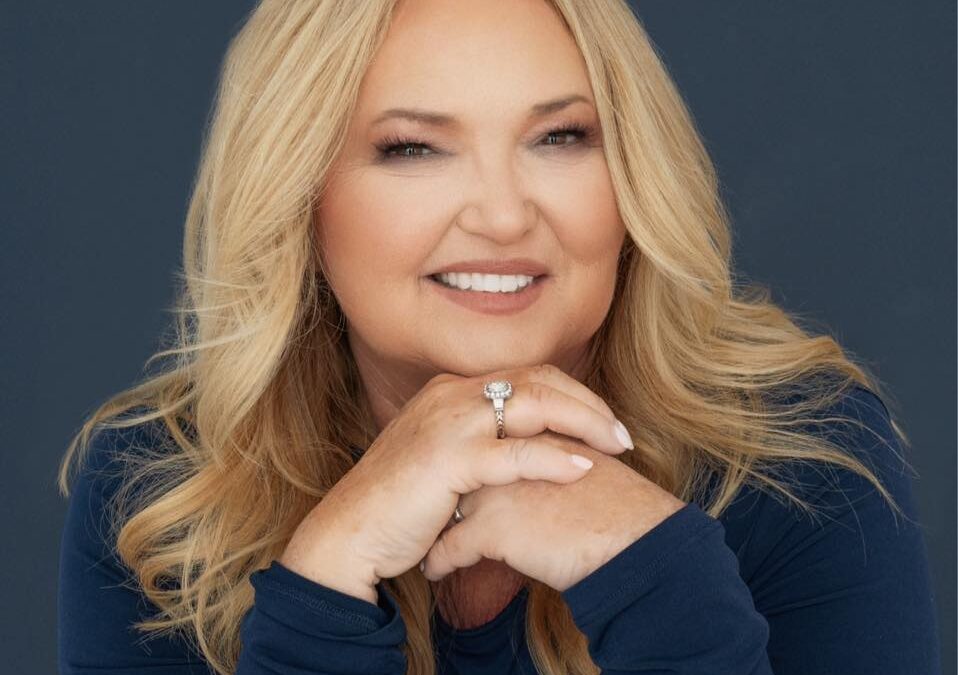(Fort Myers, FL– March 19, 2024) – Calusa Waterkeeper, a leading environmental nonprofit organization committed to preserving and restoring the waterways in Southwest Florida, is thrilled to announce the appointment of Connie Ramos-Williams as its new Executive Director. With an impressive background in community advocacy and a proven track record of leadership, Ramos-Williams will play a pivotal role in advancing the organization’s mission to ensure clean water for current and future generations.
Calusa Waterkeeper’s Board of Directors expressed their confidence in Ramos-Williams’s ability to lead the organization into a new era of environmental advocacy. “We welcome Connie’s dynamic leadership and advocacy in our fight for drinkable, fishable, swimmable water in our region,” said Calusa Waterkeeper president Chuck Avery. “Her passion for our mission and vision to expand the organization’s reach, partnerships, and impact across the region to ensure sustainable water quality for generations to come is energizing.”
Ramos-Williams brings a wealth of advocacy, communications, management, and entrepreneurial experience to the organization. She has amassed more than two decades of leadership experience in the marketing, media, and nonprofit sectors, earning top regional, state, and national recognitions and awards. From 2007 to 2022 she served as founder, president, and CEO of a leading regional marketing agency. Under her leadership the agency grew nationally and increased its annual revenue by double digits consecutive years. Prior to that Ramos-Williams founded and published a regional parenting magazine that reached a loyal monthly readership of 50,000. She also served several years as the Niche Advertising Director at the News-Press, part of the USA TODAY network.
Her nonprofit leadership experience is extensive. Most recently she served several years as the Advisory Board Chair for Blessings in a Backpack of Southwest Florida. During her tenure the nonprofit experienced a 550% increase in overall reach and community impact, as well as hosted its first signature event that exceeded fundraising goals. Prior to that she served in leadership roles for Dress for Success SWFL, Multicultural Centre of SWFL, and numerous other nonprofits and organizations throughout the region.
In her role as Executive Director, Ramos-Williams will work alongside Waterkeeper Codty Pierce to spearhead Calusa Waterkeeper’s efforts to safeguard the region’s water resources, promote environmental awareness, and advocate for policies that protect and enhance water quality. With a passion for conservation and a commitment to community engagement, she is poised to lead the organization in its mission to preserve the natural beauty and ecological balance of Southwest Florida’s waterways. Her dedication to environmental sustainability and expertise in strategic leadership will be invaluable assets as Calusa Waterkeeper continues its important work in water conservation and protection that focuses on water quality’s impact on human health, ecosystems, and aquatic life.
“Due to our region’s ongoing water crisis, I am stepping out of early retirement to take a lead role in the clean water movement as Calusa Waterkeeper’s new Executive Director,” said Connie Ramos-Williams. “Clean water is essential for the economic well-being and overall health of our communities, wildlife, and ecosystems and Calusa Waterkeeper’s science-based research, programs, and projects are making a local impact. I look forward to working with the dedicated team at Calusa Waterkeeper to advocate for policies that prioritize water quality and to engage the community in protecting our precious water resources.”
Under Ramos-Williams’s leadership, Calusa Waterkeeper aims to expand its outreach, strengthen partnerships, and empower communities to actively participate in the protection of their local waterways. The organization remains dedicated to promoting the sustainable use of water resources and addressing the challenges posed by pollution and habitat degradation.

























